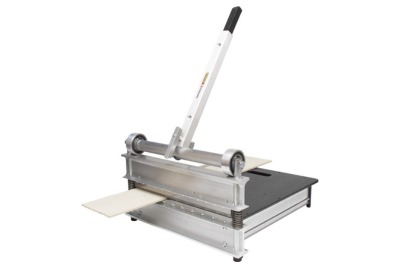Commercial Insurance For Route Businesses

Running a route-based business, whether it's delivering products, services, or packages, requires an efficient operation and careful planning. As businesses that frequently operate on the road, route-based businesses face a unique set of risks. These risks, including vehicle accidents, liability claims, and damages to goods, make commercial insurance a critical aspect of business operations. In this article, we'll explore the importance of commercial insurance for route businesses and how it can protect your assets, employees, and reputation.
Why Route Businesses Need Commercial Insurance
Route-based businesses are often involved in the transportation of goods, services, or people, which exposes them to a variety of risks. A key concern is vehicle-related incidents, which can lead to damage to the delivery truck, injury to employees, and third-party liability. However, it's not just about vehicles. Businesses in this sector may also need coverage for the goods they transport, employee injuries, and the liability arising from operations at customer locations.
Without proper insurance, your business could face significant financial losses. A commercial insurance policy provides the safety net needed to mitigate the effects of these risks, helping ensure that your business can recover quickly from unexpected situations.
Types of Commercial Insurance for Route Businesses
General Liability Insurance
General liability insurance is one of the most important types of coverage for route businesses. It protects your business from claims related to bodily injury, property damage, or personal injury caused during business operations. For instance, if an employee damages a customer's property during delivery or an accident occurs that injures someone, this insurance helps cover the costs of the claims.
Commercial Vehicle Insurance
Since route businesses rely heavily on vehicles, commercial vehicle insurance is vital. This coverage protects your business vehicles from accidents, theft, or damage. It can also cover the medical expenses of drivers or passengers in the event of an accident. Depending on the policy, commercial vehicle insurance can include:
Collision Coverage: Protects against damages to your vehicle caused by a crash.
Comprehensive Coverage: Covers damage to your vehicle due to non-collision incidents like weather or theft.
Liability Coverage: Covers damages caused by the business vehicle to third parties.
Cargo Insurance
If your route business involves transporting goods, cargo insurance is crucial. This coverage protects the goods being transported in the event of theft, loss, or damage. Whether you're delivering sensitive electronics, perishables, or heavy machinery, cargo insurance ensures that you won’t be left with a significant financial burden if something goes wrong during transport.
Workers’ Compensation Insurance
Employees in route-based businesses often work in high-risk environments, from driving to handling heavy deliveries. Workers' compensation insurance covers medical expenses and lost wages for employees who are injured on the job. It's essential to protect both your workers and your business from the financial consequences of workplace injuries.
Commercial Property Insurance
For route businesses that operate from a physical location, such as a warehouse or office, commercial property insurance protects against damage to your building, equipment, and inventory. This insurance can cover losses due to natural disasters, fire, vandalism, or theft, helping ensure that your business can continue operating smoothly even after a catastrophe.
Customizing Your Insurance Package
While these are the primary types of coverage for route businesses, you can customize your insurance policy based on the specific needs of your business. A comprehensive insurance package can combine several types of coverage, ensuring that all aspects of your business are protected.
For example, if your route business also involves hiring independent contractors, you may need a non-owned vehicle liability policy to cover drivers using their personal vehicles for your business. Alternatively, if your business serves high-risk areas, you may need additional liability coverage or higher cargo limits.
Conclusion: Investing in Protection for Your Route Business
Running a route business comes with its challenges, and safeguarding your operations through commercial insurance is crucial. With the right insurance policies in place, you can protect your assets, employees, and customers from a wide range of risks. General liability, vehicle insurance, workers’ compensation, and cargo insurance are just a few of the key areas to consider when building your insurance package.
Investing in commercial insurance not only offers peace of mind but also ensures that your route business can weather any storms that come your way. By working with an experienced insurance provider, you can tailor a policy that fits the unique needs of your business, helping you focus on what truly matters—growing and succeeding in your route-based operations.
Note: IndiBlogHub features both user-submitted and editorial content. We do not verify third-party contributions. Read our Disclaimer and Privacy Policyfor details.







